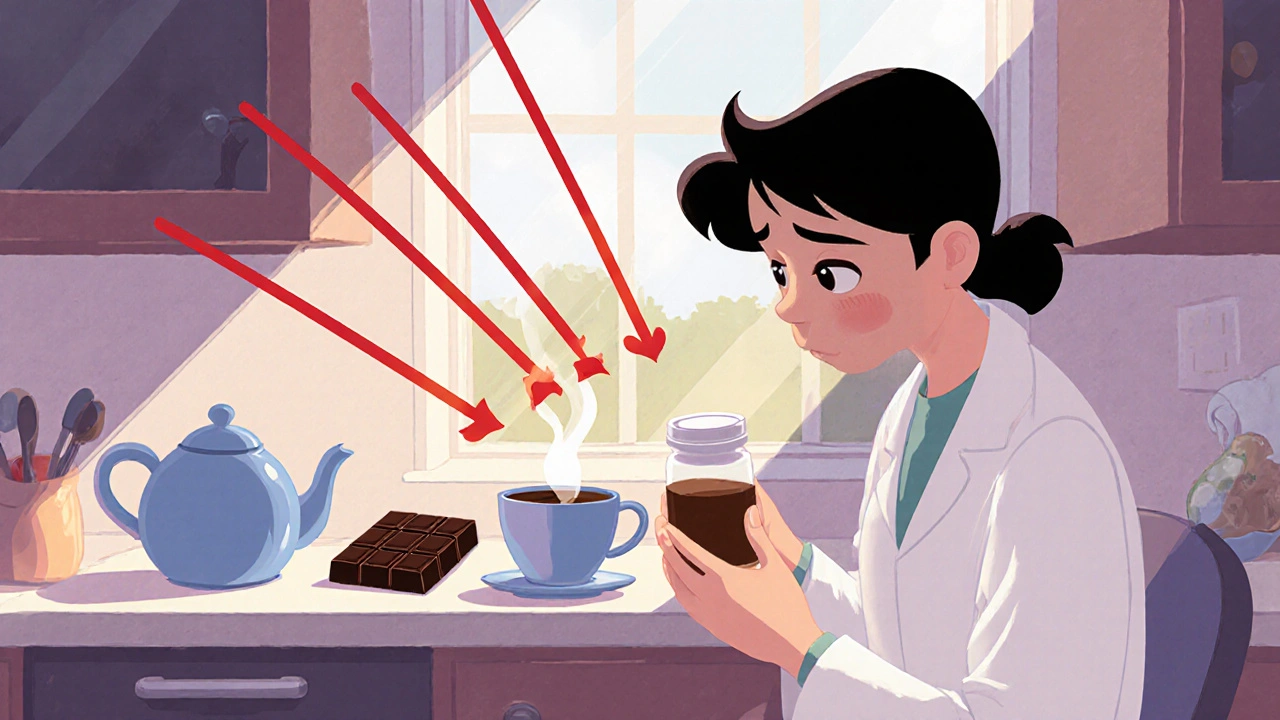Tea and Drugs: How Common Beverages Interact with Medications
When you sip tea, a widely consumed beverage that includes black, green, herbal, and white varieties, often used for relaxation or alertness. Also known as herbal infusion, it can be more than just a comforting ritual—it’s a chemical player in your body’s drug response system. Many people don’t realize that something as simple as a cup of tea can change how your medication works. Green tea, for example, contains compounds that may interfere with blood thinners like warfarin. Black tea’s caffeine can boost the effects of stimulants or raise blood pressure when taken with certain antidepressants. Even chamomile, often seen as harmless, can amplify the sedative effect of benzodiazepines or sleep aids.
Drug interactions, the unintended changes in how a medication behaves when combined with another substance. Also known as pharmacological interactions, they’re not just about pills mixing with pills—tea, coffee, and herbal drinks are major players. A study in the Journal of Clinical Pharmacology found that green tea extract reduced the absorption of nadolol, a beta-blocker used for heart conditions, by up to 70%. That’s not a small drop—it can mean your medication isn’t working at all. Meanwhile, St. John’s Wort tea, often used for mood support, can make birth control, HIV meds, and transplant drugs useless by speeding up how fast your liver breaks them down. And let’s not forget caffeine: it’s in many teas and can make stimulant ADHD meds too strong, or cause jitteriness when paired with decongestants.
Herbal supplements, plant-based products sold as natural remedies, often taken without medical supervision. Also known as botanicals, they’re the quietest but most dangerous part of this mix. Unlike prescription drugs, they don’t come with warning labels. People think if it’s natural, it’s safe. But ginkgo biloba tea can thin your blood like aspirin. Licorice root tea can raise blood pressure and mess with kidney function, especially if you’re on diuretics like Lasix. Even ginger tea, praised for nausea, can increase bleeding risk if you’re on blood thinners or about to have surgery. These aren’t edge cases—they’re everyday risks.
You don’t need to quit tea. But you do need to know what’s in it and what you’re taking. If you’re on any prescription drug—for anxiety, heart disease, diabetes, or even high cholesterol—ask your pharmacist or doctor: Could my tea be affecting this? It’s not about fear. It’s about control. The posts below break down real cases: how green tea interferes with blood pressure meds, why chamomile can clash with sedatives, and which herbal teas are safest when you’re on immunosuppressants or antidepressants. You’ll find clear, no-fluff comparisons that show exactly what to avoid, what’s okay, and when to switch your brew.

